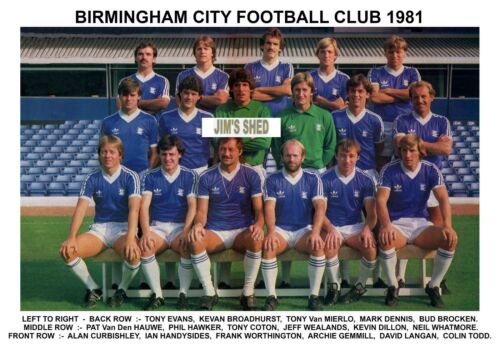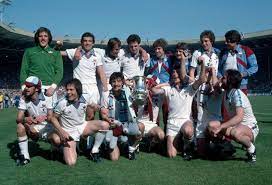8. Jun, 2022
WEST HAM UNITED; THE EAST END ACADEMY CONTINUES TO DELIGHT
Between 1961 and 1989 West Ham United had two managers. Ron Greenwood and John Lyall were the sole residents of the Upton Park hot seat. In that period the Hammers won the FA Cup Three Times (1964, 1975, 1980) and the European Cup Winners Cup (1965). They were League Cup Runners Up in 1966 and 1981. They also lost the 1976 European Cup Winners Final to Belgian side Anderlect
A decent return yes, but you may have expected a bigger turnover at the top. Now every West Ham fan will add that they won the World Cup in 1966. The England team was captained by Bobby Moore who was also the Hammers skipper while all four goals were scored by West Ham players. Martin Peters solitary strike supplementing a Geoff Hurst hat trick. Yet when that celebrated trio donned a Claret and Blue shirt the results were more Cricklewood then Hollywood. West Ham's best finish was a modest 10th. As teammate Harry Redknapp points out, Moore, Hurst and Peters were more often embroiled in relegation scrapes then title charges.
But then the club originally known as Thames Ironworks has rarely complied with convention. Two constants have remained. The clubs strong link with its local community. West Ham and London's East End go together like Pie and Mash. The Hammers are also entwined with playing attractive entertaining football. An ethos which began in the Greenwood era. Style over substance has always been the byword at The Academy of Football. Woe betide anyone who adopts a less romantic tack. Step forward Sam Allardyce.
Typically West Ham were a Second Division club as The Eighties dawned. They were relegated in 1977. Just 2 years after Billy Bonds had lifted the FA Cup aloft at Wembley Bonds was already a Hammers icon, he was signed from Charlton Athletic in 1967 and went on to make a club record 799 appearances. In contrast to today relegated clubs were not obliged to sell the family silver. Bonds was happy to throw in his lot in with the demands of Second Division football. As was fellow legend Trevor Brooking. The stylish midfielder was an established England International, forming a productive relationship with Kevin Keegan.
The Upton Park board also retained faith in John Lyall. Many managers would have been jettisoned following relegation, but that was never the West Ham way either. Lyall repaid them handsomely, although it took 4 years to bring top flight football back to the East End. In the meantime the fans had ample compensation in the form of the 1980 FA Cup triumph. Having already disposed of a highly fancied West Bromwich Albion, The Hammers faced another West Midlands outfit in the Quarter Final. Aston Villa were on the threshold of greatness. Within 2 years the other Claret and Blues would be Champions of Europe following their League title success 12 months earlier. But on Saturday March 8th 1980 white shirted Villa were beaten 1-0.A trademark atmospheric Bolelyn Ground (Upton Park is the name of the local tube station.)encounter was settled by a last minute Ray Stewart penalty. The Full Back was signed from Dundee United in 1979. He had quickly earned a reputation as a brilliant penalty taker, most aptly shown when his spot kick saw off Villa. Other new faces were becoming fans' favorites. Elegant midfielder Alan Devonshire was recruited from none league football. A former van driver, Devonshire was earning rave reviews in his debut season. While goalkeeper Phil Parkes made the switch from West to East London. Sedgley born Parkes was the World's most expensive goalkeeper when West Ham paid Queens Park Rangers £565,000 in 1979.
An outstanding goalkeeper, Parkes was capped once by England. He had the misfortune to be playing in the same era as Peter Shilton and Ray Clemence..
Former England striker Stuart Pearson joined from Manchester United. Pearson scored West Ham's equaliser in the FA Cup Semi Final against Everton. The Villa Park stalemate resulted in a Elland Road replay. A splendid Devonshire solo effort gave the Second Division club the lead before Bob Latchford's diving header restored parity. A thrilling game was finally settled by an unlikely goal scorer. Frank Lampard's extra time header taking Lyall's men to Wembley. Like Bonds and Brooking, Frank Lampard (Senior) is a West Ham great. His memorable twist round the Elland Road corner flag celebration going into Hammers folklore. Indeed the joyful jig was reprised by his Son after scoring against Leeds in 1998.
West Ham faced Arsenal in an all London final. Maybe this was a good omen. Five years earlier West Ham had defeated another club from the Capital. Alan Taylor scoring both goals in a 2-0 win over Second Division Fulham. In 1980 the boot was on the other foot, the Claret and Blues were the underdogs. Arsenal were the FA Cup holders having beaten Manchester United in a thrilling final. Indeed this was the Gunners third successive FA Cup Final. In 1978 they had surprisingly been beaten by Ipswich Town.
The Hammers were unperturbed and took a 13th minute lead courtesy of Brooking's stooping header. Arsenal's big names failed to fulfill expectations. Liam Brady and company were unable to pierce the West Ham rearguard. The defence was superbly marshalled by Bonds and 21 year old Alvin Martin But another West Ham young player stole the show. At 17 years 256 days Paul Allen became the youngest player to play in a FA Cup Final. The midfielder might have capped the day with a goal. In the second half Allen was through on the Gunners goal with only Pat Jennings to beat. With glory beckoning Arsenal defender Willie Young cynically brought down Allen. Despite commiting a professional foul Young only received a yellow card. But West Ham hung on to record a famous victory. The victorious team are shown in the cover
photo.
The following season saw Lyalls' men romp to the Second Division title. West Ham finished 13 points clear of second place Notts County. For good measure they reached another Wembley cup final. The Hammers faced Liverpool in the 1981 League Cup Final. Another late Stewart penalty salvaged a 1-1 draw. Paul Goddard's early goal put them ahead in the Villa Park replay. But as so often happened the Reds came roaring back. Goals from Kenny Dalglish and Alan Hansen taking the cup back to Anfield.
The East End boys adapted well to life in the top tier. On New Years Day 1983 18 year old striker Tony Cottee scored on his debut. Hammers fan Cottee netting in a 3-0 home win over Tottenham Hotspur. In the Autumn of 1983 West Ham briefly topped the First Division. Two years later West Ham mounted a sustained title challenge. John Lyall again freshened up the squad. The key signings were midfielder Mark Ward arrived from Oldham and striker Frank McAvennie was signed from St Mirren
Many regard the 1985-86 team as the best in West Ham history. However, they made a poor start. After 8 games West Ham were facing a relegation battle. they had only one win to their name. A mid September win over Leicester City proved the turning point. The Foxes were beaten 3-0 at Upton Park. Confidence soared as the East Londoners embarked on a 15 game unbeaten run. Handsome home victories over Aston Villa (4-0) and West Bromwich Albion (4-1) delighting the fans. The home 2-1 win over reigning champions Everton was the stand out result. The whole team were playing well. But the strike pairing of Cottee and McAvennie were grabbing the headlines. In those 15 matches the duo scored 20 goals between them.
Sadly only a select few saw those scintillating performances. The Football League was in dispute with the BBC and ITV. As a result no football was been shown on television. Frank McAvennie was a guest on Terry Wogan's chat show, a big deal in the mid 80s, but that was are only glimpse of the scoring sensation. Frank was certainly enjoying himself off the pitch. The attractions of Stringfellows night club proving a particular favourite.
The unbeaten run ended at White Hart Lane, a bitter pill for any Hammer. But they soon recovered as Charlton Athletic were beaten in a FA Cup 3rd Round tie. This time BBC cameras were present as Cottee grabbed the winner. But away defeatsat Liverpool, Arsenal and Aston Villa hampered the title chasers.
Showing great resolve the Hammers continue to press. Chelsea were hammered 4-0 at Stamford Bridge. Staying true to their tradition West Ham were sublime. They were breathing down Liverpool and Everton necks when Chelsea visited Upton Park in late April. On this occasion the Blues were less hospitable, their 2-1 victory dealing a near fatal blow to the hosts title hopes.
Going into the last Saturday of the season, there was still a flicker of hope. West Ham needed to beat West Bromwich Albion and hope Liverpool lost to Chelsea. The Hammers would bthen be crowned champions if they beat Everton the following Monday. John Lyall's troops did all they could, beating Albion 3-2. at The Hawthorns. But the win proved academic when Liverpool won 1-0 at The Bridge. The misery was further compounded with a 3-1 defeat at Goodison which saw the Toffees pip them to Runners Up spot.
It was a bitter disappointment for all concerned. But spare a thought for Phil Parkes, he had suffered a near same fate a decade earlier. He was part of a brilliant Queens Park Rangers side that finished First Division Runners up. The Hoops could only look on as Liverpool won at Wolves. The Molineux victory clinching another title for the Reds.
It was scant consolation but Parkes arguably played in the 2 greatest sides never to win the Football League Championship. instead of heralding a golden era the 1985-86 campaign proved the pinnacle, West Ham finished mid table the following season. They were relegated in May 1989. John Lyall was sacked the following month, somehow things have never been quite the same.

